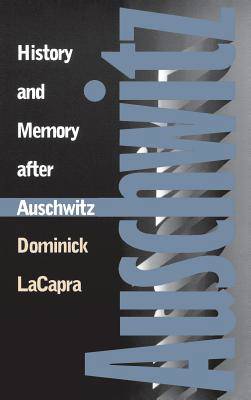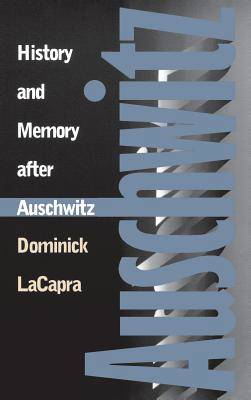
- Retrait gratuit dans votre magasin Club
- 7.000.000 titres dans notre catalogue
- Payer en toute sécurité
- Toujours un magasin près de chez vous
- Retrait gratuit dans votre magasin Club
- 7.000.0000 titres dans notre catalogue
- Payer en toute sécurité
- Toujours un magasin près de chez vous
History and Memory After Auschwitz
Conspiracy Cultures from Outerspace to Cyberspace
Dominick LaCapraDescription
The relations between memory and history have recently become a subject of contention, and the implications of that debate are particularly troubling for aesthetic, ethical, and political issues. Dominick LaCapra focuses on the interactions among history, memory, and ethicopolitical concerns as they emerge in the aftermath of the Shoah. Particularly notable are his analyses of Albert Camus's novella The Fall, Claude Lanzmann's film Shoah, and Art Spiegelman's "comic book" Maus. LaCapra also considers the Historians' Debate in the aftermath of German reunification and the role of psychoanalysis in historical understanding and critical theory. In six essays, LaCapra addresses a series of related questions. Are there experiences whose traumatic nature blocks understanding and disrupts memory while producing belated effects that have an impact on attempts to address the past? Do some events present moral and representational issues even for groups or individuals not directly involved in them? Do those more directly involved have special responsibilities to the past and the way it is remembered in the present? Can or should historiography define itself in a purely scholarly and professional way that distances it from public memory and its ethical implications? Does art itself have a special responsibility with respect to traumatic events that remain invested with value and emotion?
Spécifications
Parties prenantes
- Auteur(s) :
- Editeur:
Contenu
- Nombre de pages :
- 232
- Langue:
- Anglais
Caractéristiques
- EAN:
- 9780801434969
- Date de parution :
- 30-03-98
- Format:
- Livre relié
- Format numérique:
- Genaaid
- Dimensions :
- 152 mm x 229 mm
- Poids :
- 503 g

Les avis
Nous publions uniquement les avis qui respectent les conditions requises. Consultez nos conditions pour les avis.






